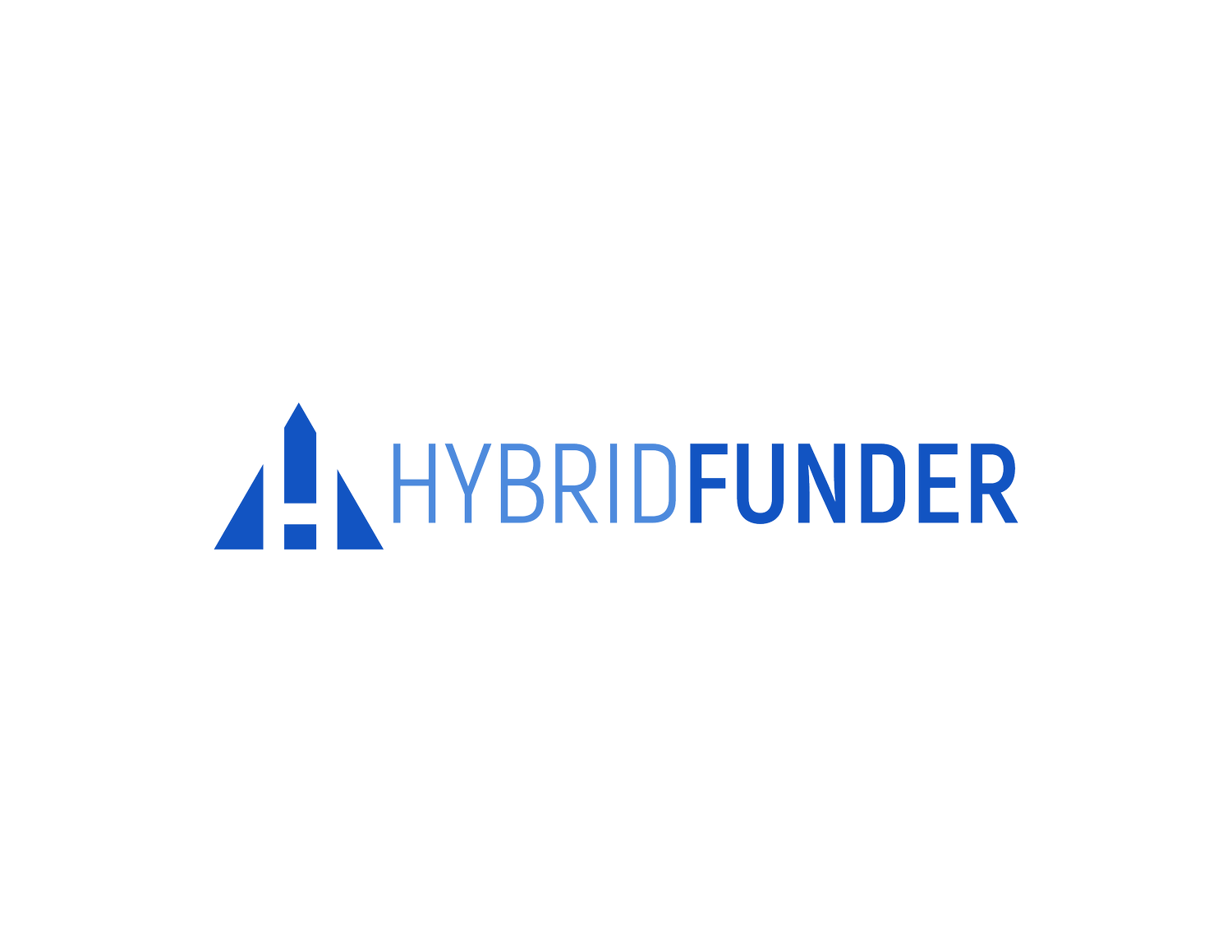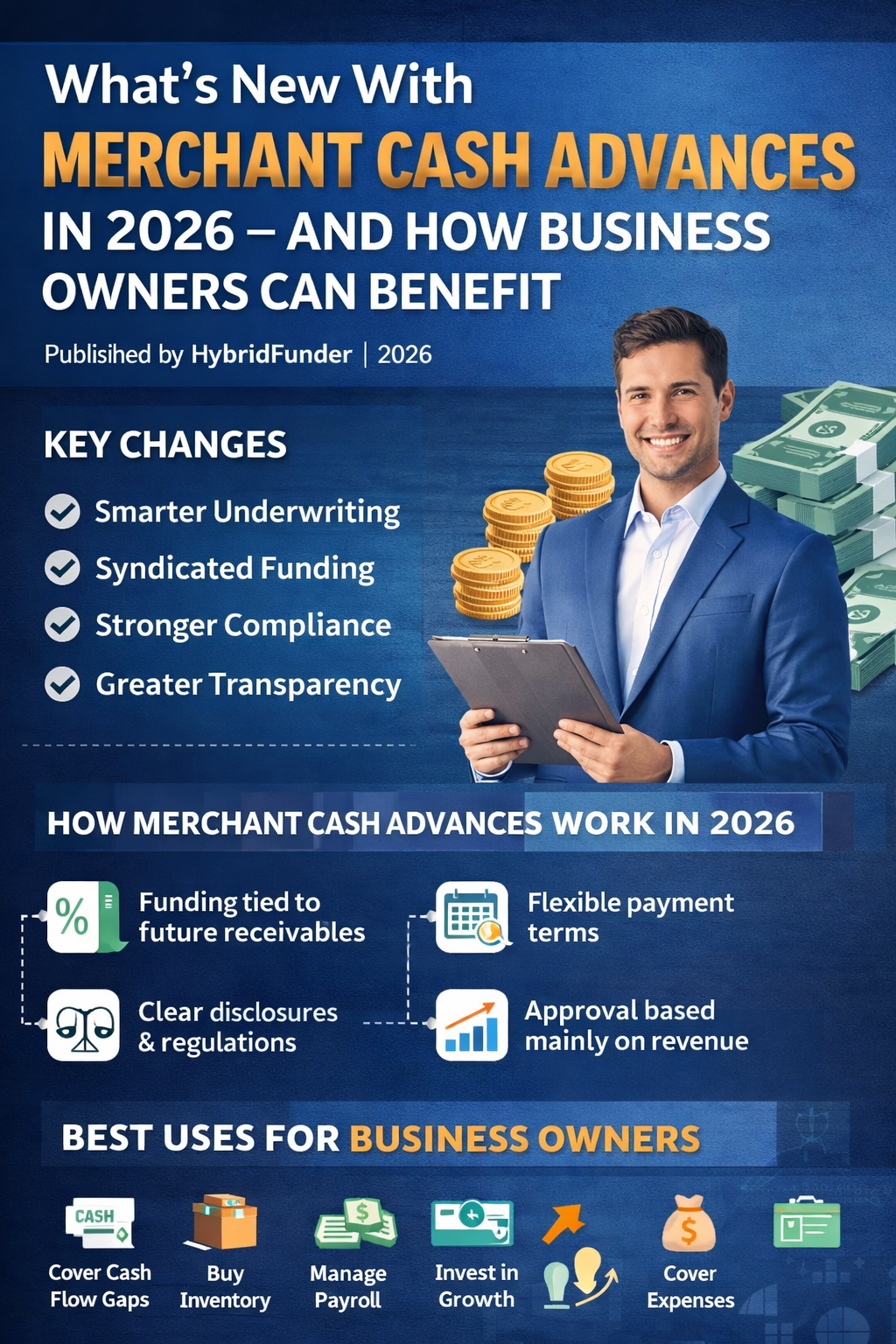What’s New With Merchant Cash Advances in 2026 — And How Business Owners Can Benefit
Merchant Cash Advances have evolved in 2026. New regulations, smarter underwriting, and increased transparency are reshaping how businesses access fast capital. Learn what’s changed and how today’s MCA structures can work strategically for business owners.
MCA vs SBA Loans: What’s the Difference and Which One Is Right for You?
MCA vs SBA Loans: What’s the Difference and Which One Is Right for You?
📅 Posted by HybridFunder
Published July 22, 2025
💡 Introduction
When your business needs funding, choosing the right solution is critical. Two common options are Merchant Cash Advances (MCAs) and SBA Loans. Both provide working capital, but they serve very different needs.
In this article, we’ll break down the differences between MCA and SBA financing — so you can decide which option is the best fit for your business today.
💳 What Is a Merchant Cash Advance (MCA)?
A Merchant Cash Advance isn’t a loan — it’s an advance on your business’s future revenue. You get fast capital, and in return, you agree to repay it through a fixed daily or weekly percentage of your revenue.
Key Benefits:
Fast approvals — often same-day
Minimal documentation — just 4 months of bank statements
Available for businesses with credit scores as low as 500
Great for short-term cash needs or emergencies
Consider an MCA if you need:
$5,000 to $500,000 fast
Working capital to cover expenses
Emergency funds for payroll, supplies, or growth
A solution that doesn’t rely on strong credit
🏛️ What Is an SBA Loan?
SBA Loans are government-backed business loans that offer low rates, long repayment terms, and high loan amounts. They’re ideal for stable businesses with strong credit and financials.
Key Benefits:
Low interest rates (as low as WSJ Prime + 1.5%)
Terms of 5 to 25 years
Loans up to $5 million
Use for real estate, debt consolidation, business acquisition, or expansion
SBA Loan programs we offer through our partners:
SBA 7(a): General business use
SBA 504: Real estate & equipment
SBA Express: Faster, smaller loan amounts
Consider an SBA loan if you:
Have 650+ credit score
Can provide financial statements or tax returns
Want monthly payments with long-term payoff
Need capital for real estate, equipment, or major growth
⚖️ MCA vs SBA Loan — Side-by-Side Comparison
FeatureMCASBA LoanSpeedSame-day3–7+ business daysCredit Requirements500+ OKTypically 650+RepaymentDaily/WeeklyMonthlyLoan Size$5K–$500K+Up to $5MTerm Length3–12 months5–25 yearsDocs NeededBank statements onlyFull financial packageBest ForFast cash, flexible creditBig projects, real estate, low-cost capital
🤔 Which One Is Right for You?
If you need speed, have limited credit, or want simple documentation, go with an MCA.
If you have solid financials, good credit, and are planning long-term growth, an SBA loan may be your best bet.
🚀 How HybridFunder Helps
At HybridFunder, we syndicate deals through a network of trusted partners — including South End Capital, a division of Stearns Bank — to match you with the best offer for your unique situation.
Whether you need funding in 24 hours or want to explore long-term financing, we’re here to make the process easy.
📥 Ready to Apply?
It only takes 60 seconds.
👉 Apply Now — Upload your last 4 months of bank statements and get a soft offer today.
📩 Have Questions?
Email us at john@hybridfunder.com or call/text (347) 555-1234
🔒 Disclaimer
HybridFunder is a syndication partner, not a direct lender. All funding is provided through third-party institutions. MCA offers are not loans and are subject to repayment via daily or weekly ACH draws from your business account. SBA and conventional offers are subject to full underwriting. HybridFunder complies with the New York Commercial Financing Disclosure Law. Funding terms and eligibility may vary.
How to Qualify for Equipment Financing as a Small Business
“Looking to upgrade your tools, trucks, or equipment without draining your cash flow? Learn how small businesses can qualify for fast, flexible equipment financing — even if you're just starting out.”
Texas MCA Shake-Up: New Law Threatens Cash Advances & Small Business Survival
New legislation in Texas is shaking up the Merchant Cash Advance industry. With HB 700 taking effect in September 2025, many MCA lenders are halting funding—leaving small business owners scrambling for working capital. Learn how this change impacts Texas businesses and what funding alternatives are still available.




